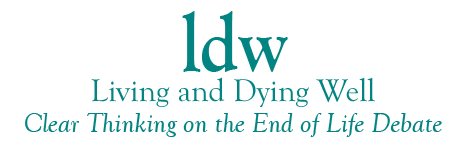In a balanced and thoughtful editorial published on the eve of the Second Reading of Lord Falconer’s Assisted Dying Bill in the House of Lords, The Guardian suggests that legalisation of assisted suicide would change the moral landscape
In an editorial published on the eve of the Second Reading debate on Lord Falconer’s Assisted Dying Bill The Guardian suggests that what the bill is seeking is “that the law modifies what has until now been an absolute principle: the safeguarding of human life”. “In individual cases”, it continues, “that can seem the overwhelmingly compassionate decision. Nevertheless, and heartbreaking though such cases can be, the absolute principle is too important to jettison”.
In The Guardian’s view, changing the law to license assistance with suicide “would create a new moral landscape” and “is potentially open to abuse or, as those with experience of nursing elderly relatives will recognise, to the fear of abuse”.
The editorial also draws attention to an important aspect of this debate that often goes unremarked. A change in the law, it writes, “may not even be necessary. In his Judgment on the Nicklinson case Lord Sumption argued that the law is considerably more humane and flexible than many of those who argue for reform appear to recognise”. That is indeed so.
As Lord Carlile wrote in The Telegraph last week, “if we had an oppressive law, if the law prohibiting assistance with suicide were being widely flouted or if people were being hauled through the courts for helping loved ones out of this world through compassion, it would be different. But that is not the case. Assisting suicide is a rare offence and, because the law gives the prosecutors discretion not to press charges where there has been no malice or malpractice, prosecutions are even rarer”.
It is incumbent on those who wish to see the law changed to demonstrate that the law as it stands is defective and that what they would put in its place would be better. On neither count has any serious evidence been produced.
